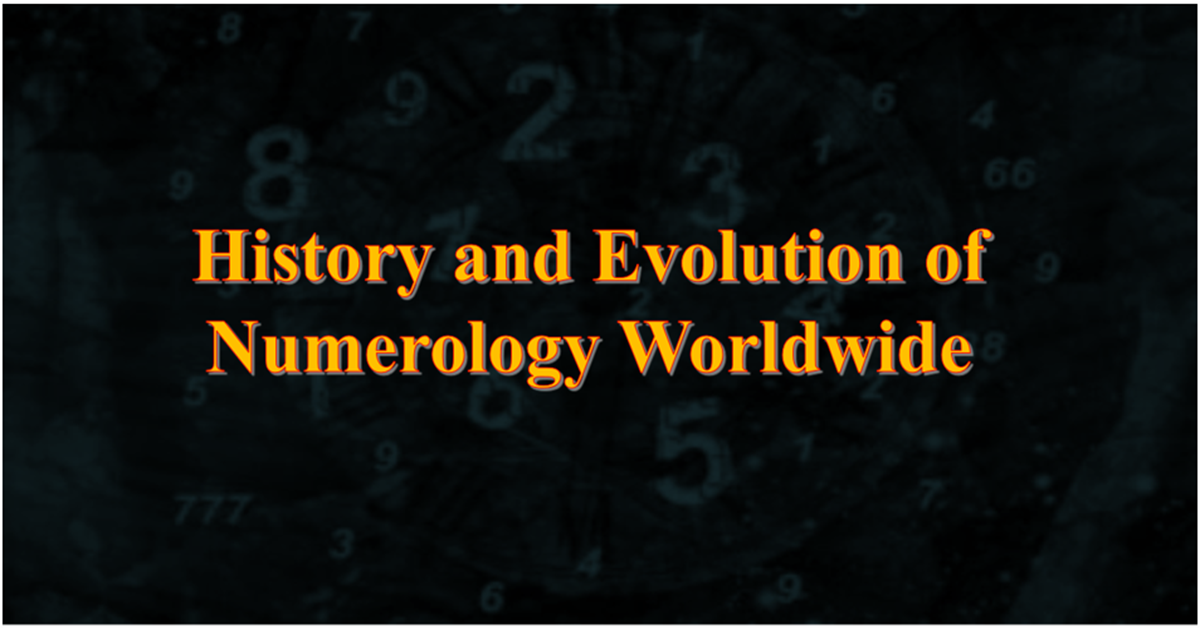The Global Evolution of Numerology: Tracing Its Origins and Impact
Numerology, the belief in the mystical significance of numbers and their influence on human life, has a long and diverse history. Its evolution can be traced through various civilizations and cultural developments. Here is a general overview of the evolution of numerology:
Ancient Civilizations:
Numerology has ancient roots, with evidence suggesting its practice in civilizations such as Mesopotamia, Egypt, China, and India. Ancient cultures observed patterns in numbers and believed in their symbolic and spiritual significance.
Pythagorean Numerology (6th century BCE):
Pythagorean numerology is often attributed to the ancient Greek mathematician Pythagoras (circa 570–495 BCE). Pythagoras and his followers believed that everything in the universe could be explained through numbers. They assigned numerical values to letters, laying the foundation for a system that influenced later developments in numerology.
Chaldean Numerology (Babylon, Mesopotamia):
Chaldean numerology, associated with the ancient Chaldeans of Babylon (present-day Iraq), is another ancient system. The Chaldeans were known for their contributions to astrology, and Chaldean numerology assigns specific numerical values to letters. This system has influenced numerology practices in the Middle East.
Chinese Numerology:
Chinese numerology has deep historical roots, with beliefs in lucky and unlucky numbers shaping various aspects of Chinese culture. The I Ching, an ancient Chinese divination text, also incorporates numerology principles. The concept of Feng Shui, which considers the arrangement of objects and numbers for harmony, is another example of Chinese numerological influence.
Indian (Vedic) Numerology:
Numerology is closely tied to ancient Indian spiritual and mystical traditions. In Vedic numerology, letters of the alphabet are assigned numerical values, and this system is often used in conjunction with astrology for divination and guidance.
Medieval and Renaissance Europe:
During the medieval and Renaissance periods in Europe, scholars explored the connections between numbers, astrology, and the divine. Numerology was often studied alongside other esoteric sciences, and the Renaissance saw a revival of interest in ancient wisdom.
19th and 20th Centuries:
The 19th century witnessed a resurgence of interest in mysticism and occultism. Numerology gained popularity as part of this broader spiritual movement. The 20th century saw the development of different numerology systems, with Pythagorean and Chaldean numerology becoming more widely known.
Modern Variations:
In the modern era, numerology has evolved with various interpretations and applications. Different numerological systems, such as Kabbalah numerology and angel numbers, have emerged. Numerology is often practiced as a form of divination, self-discovery, and guidance in personal and professional matters.
It’s important to note that while numerology has a rich historical background and cultural significance, it lacks empirical scientific evidence and is considered pseudoscience. Individuals interested in numerology often approach it from a spiritual or personal belief perspective. For detail analysis watch video:
https://youtu.be/zESf919twXc


